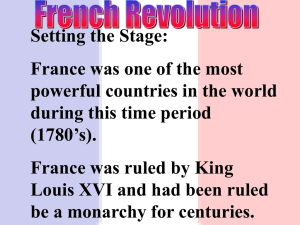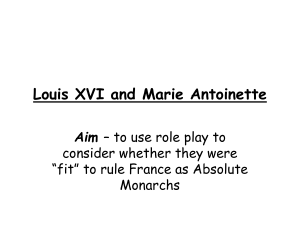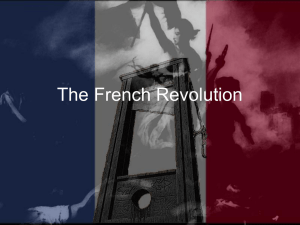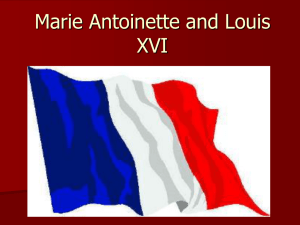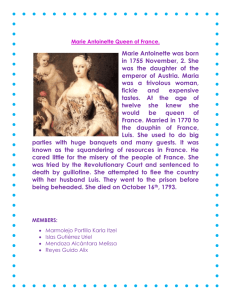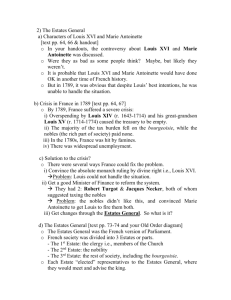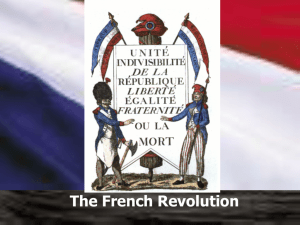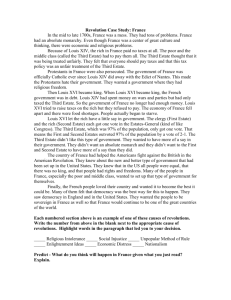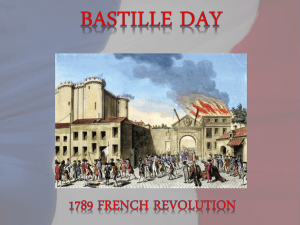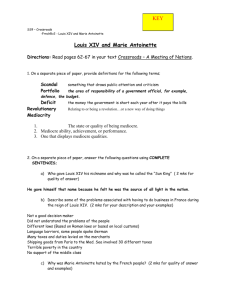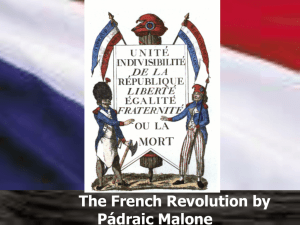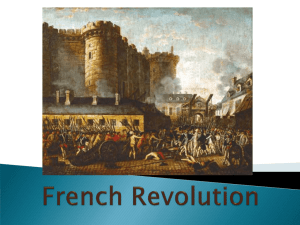Introduction to the French Revolution Notes
advertisement
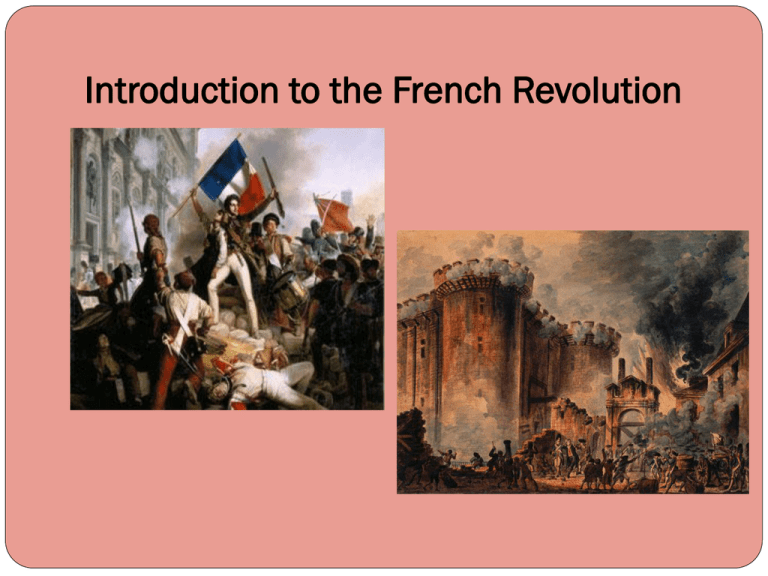
Introduction to the French Revolution Before he was known as King Louis XVI Louis Capet or “Citizen Capet” His brother was the true heir to the throne but died as a child Ill prepared for throne Great-grandson of Louis XIV (the Sun King) Enjoyed hunting, wrestling and locksmithing Grandfather: King Louis XV His parents died of smallpox Age 15 married 14 year old Hapsburg Archduchess Marie Antoinette (second cousin once removed) Their marriage was arranged to cement a union of the Hapsburgs and Bourbons- bitter rivals since the 16th century Tuberculosis is a contagious bacterial infection that involves the lungs, but may spread to other organs Marie Antoinette Mother: Marie Theresa Father: Holy Roman Emperor Francis I Had many siblings including Joseph II. Viewed as an outsider High spirited tomboy Rather lazy, extremely frivolous Very social Loved to gamble Exquisite taste in fashion, furniture, jewelry Marie Antoinette: Will have four children with Louis XVI (all but one will die as a child) Sought refuge at her private domain at Versailles- the Petit Trianon Very fancy “peasant cottages” “Had the tastes of an actress, not an austerely regal queen” Necklace Affair (was innocent but not in the eyes of the French citizens) King Louis XVI & the Road to Revolution Louis became King of France at age of 20 Very immature and lacked self-confidence Wanted to be a good king and help his subjects French Subjects: Severe food shortages Weighed down by taxes Resentful of royal absolutism Desired self-government (like the United States) Estates General had not met since 1614. Rising resentment toward King & Queen Louis= too indecisive Marie Antoinette: blamed for country’s financial situation The French Monarchy: 1775 - 1793 Marie Antoinette & Louis XVI Review from last night’s homework 1. What was the social structure of the old regime in France? 2. What economic troubles did France face in 1789, and how did they lead to further unrest? 3. What actions did delegates of the Third Estate take when the Estates-General met in 1789? 4. What was the significance of the storming of the Bastille? Ancien Regime= Old Order First Estate= clergy Second Estate= nobility Third Estate= majority of population It was the best of times, it was the worst of times, it was the age of wisdom, it was the age of foolishness, it was the epoch of belief, it was the epoch of incredulity… -- Charles Dickens A Tale of Two Cities Incredulity= amazement, wonder *Epoch: period of time, beginning of a historical era Socio-Economic Data, 1789 The French Urban Poor 80 70 60 50 1787 1788 40 30 20 10 0 % of Income Spent on Bread Cartoon #1 1. How does the Cartoonist portray the Third Estate? Explain why. 2. What were the differences among the social classes in prerevolutionary France? Cartoon #2 1. How does the Cartoonist portray the Third Estate? Explain why. 2. What were the differences among the social classes in prerevolutionary France? Cartoon #3 1. How does the Cartoonist portray the Third Estate? Explain why. 2. What were the differences among the social classes in prerevolutionary France? Ticket to Exit: Judging from what you’ve learned about the social divisions within France’s three estates and what you currently know about the social classes in our country today, give me one example how they are alike and one way they are different.
